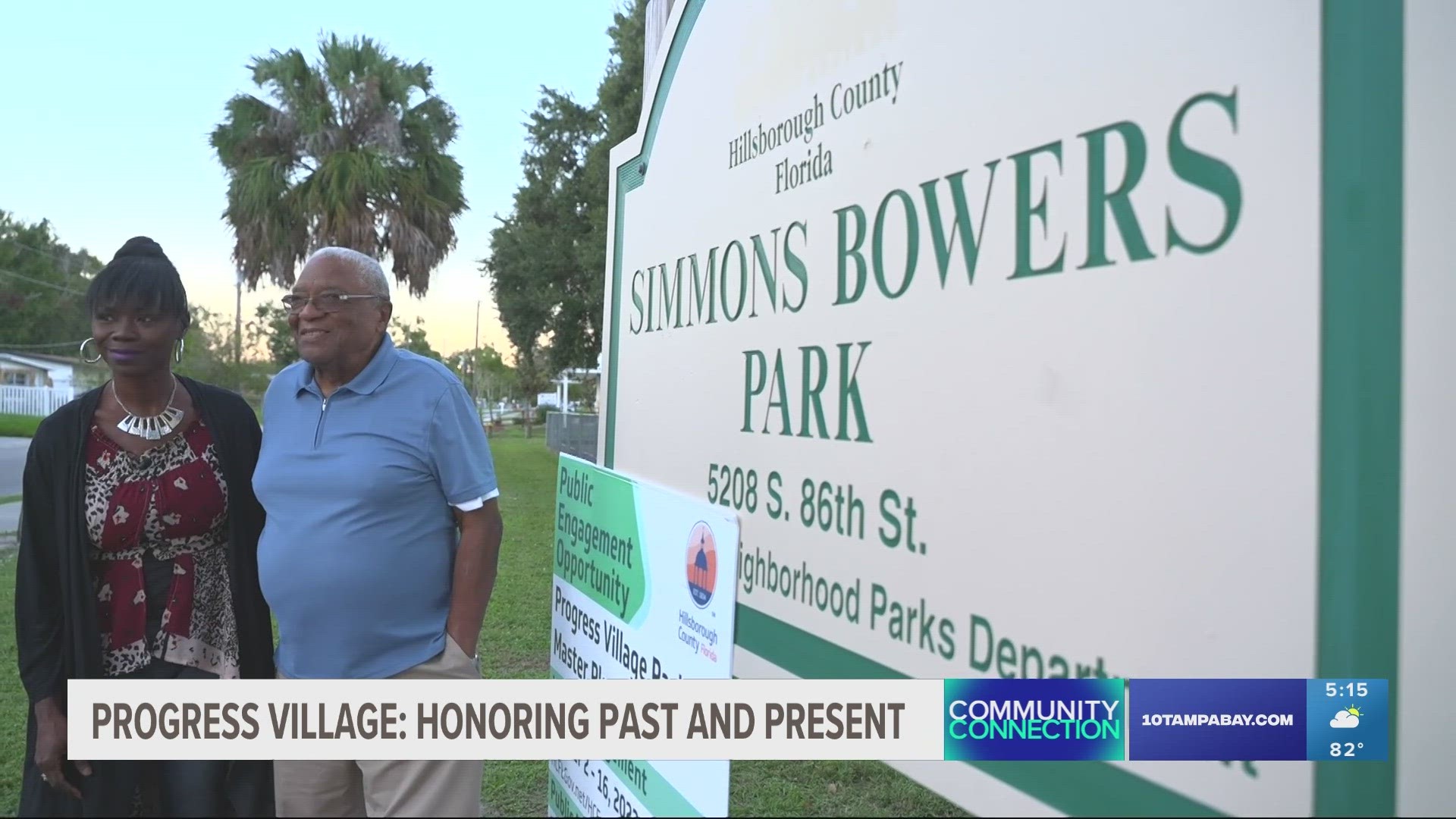PROGRESS VILLAGE, Fla. — The memories of growing up in Progress Village run deep for Twanda Bradley.
She remembers a time when older kids helped walk her home from school. Her childhood was filled with softball games as a member of the Little League team or hanging out with friends at Progress Village Park.
The village was literally family. Bradley also recalls when parents had the authority to discipline any child for misbehaving.
“You did wrong, they could correct you right then and there. That's how close the families are,” Bradley said. “If you did something, they will call your parent.”
Among her fondest memories yet was helping lay down tile at her local church. It had just received enough money to have pews and flooring. She still attends the same church today.
Little did Bradley know, she’d serve as president of the Progress Village Civic Council today.
“A lot has changed,” Bradley said. “What hasn’t changed is family.”
Progress Village is Tampa’s first affordable housing suburb. Development plans took shape in the late 1950s, and African Americans began moving in around 1960.
However, the Progress Village Civic Council, including its founding pioneers and the community, had to band together and draw strength from each other to have their essential needs met.
Development came at a time when Jim Crow laws dictated life for Black communities. Subjection to threats and harassment were only among the barriers imposed for seeking housing, explained Fred Hearns, Tampa Bay History Center’s curator of Black history.
Progress Village allowed the opportunity for many African Americans to own their first home in the area during this period. Families were able to purchase a home with about a couple hundred down and paying about less than a $100 a month, Hearns said.
"You're actually buying a home that will be yours, and you can hand down to your family," Hearns said.
That home came with another price: It was still miles away from the city's core and isolated from basic services.
There were no streetlights, no sidewalks, and no transportation, recalled Wallace Bowers, who moved to the village in 1965 and also served with the council.
The push for such essential services only brought people closer together.
“It had a sense of family. We looked after each other, we took care of each other's children, we gave each other rides to work, everything that we could do to try to keep this community going,” Bowers said.
Decades later, the village, as neighbors dub, doesn’t look the same. New neighbors have since moved in and more development has popped up around the area.
Progress Village Park is also slated to undergo changes of its own with completion set for 2025.
The changes are ongoing, but longtime neighbors said the strong sense of community is written in history and will remain the same.
“I think it's because the village is blessed," Bradley said, "I feel that when the pioneers came up with the vision, it was given to them by God."
The Emanuel P. Johnson Community Center, named after one of Progress Village’s founders and who is still alive today, opened in 2016. The center also shares the same location as the Larry Sanders Progress Village Sports Complex, who the county named after in 2010 for his involvement in the community, which includes the formation of the Progress Village Panthers.
The Progress Village Foundation was also formed to help with academics, among others.
Bradley spends these days juggling her role as president of the civic council, while also helping those in need through her organization Grow My Giving Incorporated.
“As proverb says, it takes a village to raise a child and that's what the village did,” Bradley said. “That's why we're still together.”

